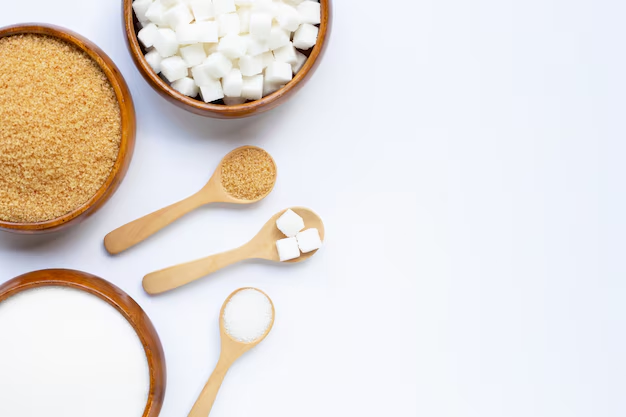Your Guide to Is Stevia Safe For Diabetics
What You Get:
Free Guide
Free, helpful information about Diabetes FAQ and related Is Stevia Safe For Diabetics topics.
Helpful Information
Get clear and easy-to-understand details about Is Stevia Safe For Diabetics topics and resources.
Personalized Offers
Answer a few optional questions to receive offers or information related to Diabetes FAQ. The survey is optional and not required to access your free guide.
Is Stevia a Safe Sweetener Choice for Diabetics?
For anyone managing diabetes, finding the right sweetener can be a balancing act between satisfying a sweet tooth and maintaining stable blood sugar levels. Stevia, a natural sweetener derived from the Stevia rebaudiana plant, is often praised for its zero-calorie, zero-carb profile. But is Stevia safe for diabetics?
Understanding Stevia and Its Health Benefits
Stevia has gained popularity as a sugar substitute because it does not raise blood sugar levels. Research indicates that steviol glycosides—the active compounds in Stevia—can actually enhance glucose tolerance and potentially improve insulin sensitivity. As a result, Stevia is often considered safe for people with diabetes, and many health professionals recommend it as an alternative for traditional table sugar.
Moreover, beyond the realm of diabetes management, Stevia boasts other potential health benefits. These include weight management, due to its low-calorie content, and potential antioxidant properties, which help combat free radicals in the body.
Safety and Considerations
Despite its benefits, it's essential to remember that moderation is key. As with any sugar substitute, consuming Stevia should be balanced and mindful. Another significant consideration is ensuring that the Stevia product you choose is pure. Some commercially available Stevia products are mixed with other sugars or artificial sweeteners, which might not be ideal for diabetics. So, checking the label before purchasing is crucial.
The FDA recognizes Stevia—specifically, high-purity steviol glycosides—as generally safe (GRAS), and many studies support its use without adverse side effects. However, individual responses can vary, and some users may experience digestive effects.
Beyond Sweeteners: Financial and Educational Tools for Diabetics
While managing diabetes effectively incorporates choosing safe sweeteners like Stevia, navigating through the financial and educational aspects of diabetes care is equally crucial. Here are some strategies and resources to consider:
Government Aid Programs: Programs like Medicaid support those needing affordable healthcare and medication, particularly beneficial for diabetics requiring regular care.
Financial Assistance: Many nonprofit organizations offer help with medical expenses, prescription drugs, and supplies necessary for diabetes management.
Debt Relief Options: Credit counseling services can help individuals manage outstanding medical debts.
Credit Card Solutions: Specialized medical credit cards or those offering cashback on medical purchases can alleviate the immediate financial burden of necessary supplies.
Educational Grants: Some foundations provide funding for diabetes education programs, allowing individuals to better understand and manage their condition.
A Snapshot of Helpful Resources
- 🏥 Medicaid and Medicare - For healthcare coverage and medication costs.
- 💰 Nonprofit Assistance - Organizations that may cover costs for diabetes-related supplies.
- 📈 Credit Counseling - Helps manage and navigate medical debts.
- 💳 Medical Credit Cards - Offers potential deferred payments for critical supplies.
- 🎓 Educational Programs - Improves knowledge and management skills in diabetes care.
Managing diabetes involves a comprehensive approach that balances dietary choices like using Stevia with financial and educational planning. By staying informed and seeking out supportive resources, those living with diabetes can enjoy a healthier lifestyle with less financial stress.
What You Get:
Free Diabetes FAQ Guide
Free, helpful information about Is Stevia Safe For Diabetics and related resources.

Helpful Information
Get clear, easy-to-understand details about Is Stevia Safe For Diabetics topics.

Optional Personalized Offers
Answer a few optional questions to see offers or information related to Diabetes FAQ. Participation is not required to get your free guide.


